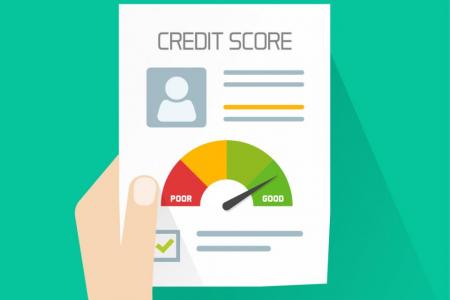Is Debt Holding Up Your Mortgage Pre-Approval?
Ready to buy a house? Congratulations! That is a big, exciting step, especially if it's your first home. However, before you can choose the perfect property and start packing your bags, you need to secure a mortgage loan, and there is a lot you need to know about that process. For example: When you submit a mortgage application, potential lenders will take a hard look at your existing debt.
Determining your debt-to-income ratio – how much debt you carry versus how much money you make – is one of the first things mortgage lenders do to determine if you are a good candidate for a loan. If your debt is considerably higher than your income, lenders might decide it's too risky to approve you for a mortgage because you might not be able to make timely payments on your loan. While this may seem like a big hurdle in the race to buying your first home, there are actually some things you can do to make your debt appear less risky to potential lenders.
To help you better understand how lenders view debt, and what you can do to improve your chances of getting approved for a mortgage, we spoke with Robert Liggio at North Country Savings Bank. A loan expert, Rob works with aspiring home buyers every day, helping them navigate the complicated mortgage application and approval process. He was able to provide valuable insight on five of the most pressing debt questions home buyers have.
5 Debt Questions for Aspiring Homeowners:
1. I have debt – does that mean I can't buy a house?
"Certainly not," said Rob. "Having debt helps you build and establish a good credit history/score – just make sure you are paying at least the minimum payment and making the payments on time. However, too much debt could be a negative, and could increase your debt ratio, which may affect the loan decision."
2. What kinds of debt do mortgage lenders look for?
"At North Country Savings Bank, we like to see at least three credit lines with a solid one to two year history of timely repayments," said Rob. Other institutions may be different, so it's always good to ask your potential lender what they hope to see in advance of applying for a mortgage.
3. Is there a difference between good debt and bad debt?
"Yes, there is a difference between good and bad debt," said Rob. "Bad debts would be collections, late payments, debts that aren't being paid back, and credit cards that have balances exceeding their credit limit. Good debts are debts that have a satisfactory repayment history. Having multiple sources of debts is also considered good."
4. Is paying off all my debt the only way to get pre-approved?
"No, paying off all debt isn't the best way to get pre-approved. In fact, at North Country Savings Bank we need to see recent credit history to evaluate your creditworthiness."
5. How can I improve my credit score quickly?
"We advise customers to utilize www.annualcreditreport.com to get a free credit report and clean up any negative information on there," said Rob. "This will help improve your score quickly. Other things you can do include paying down your debts, making more than the minimum payment required, and making sure credit lines stay below the credit limit. Follow up on your credit report when you are paying off collections or bad debt to make sure it is accurately reporting that your debts are paid in full. Things will stay on your credit report for at least 10 years – sometimes an explanation of bad debts will be needed to better your pre-approval chances."
No matter what stage of the home buying process you are at, sitting down with a loan expert is an excellent way to learn how your personal financial situation and history will affect your mortgage approval. North Country Savings Bank has loan experts at all of their lending branches who will be happy to help you assess your current debt and make recommendations for improving your credit in advance of filling out a mortgage application.











